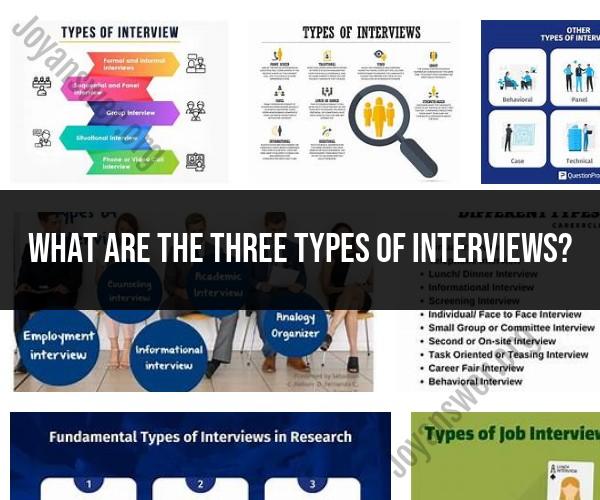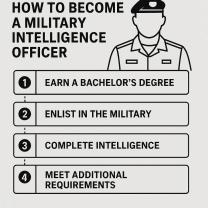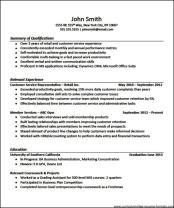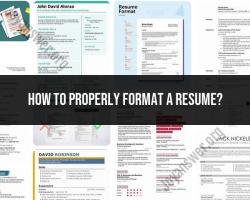What are the three types of interviews?
There are various types of interviews, each serving different purposes and conducted in different formats. Here are three common types of interviews:
Structured Interviews:
- Definition: Structured interviews are highly organized and standardized. They involve asking each candidate the same set of predetermined questions in a consistent order.
- Purpose: The primary purpose of structured interviews is to ensure fairness and consistency in evaluating candidates. By asking the same questions to all candidates, employers can objectively compare their responses.
- Advantages: Structured interviews reduce bias in the hiring process, as all candidates are evaluated using the same criteria. They are particularly useful when hiring for positions where specific skills and competencies are crucial.
- Example: In a structured interview for a customer service role, all candidates might be asked the same questions about handling customer complaints, resolving issues, and demonstrating empathy.
Behavioral Interviews:
- Definition: Behavioral interviews focus on a candidate's past behavior as an indicator of future performance. Interviewers ask candidates to provide specific examples from their previous experiences to demonstrate their skills and abilities.
- Purpose: The purpose of behavioral interviews is to assess how candidates have handled various situations in the past, including challenges, teamwork, and problem-solving. This approach helps predict how candidates are likely to perform in the new role.
- Advantages: Behavioral interviews provide concrete evidence of a candidate's capabilities based on their past actions. They are effective in identifying candidates who have demonstrated the desired skills and competencies in real-world scenarios.
- Example: In a behavioral interview, a candidate might be asked to describe a time when they successfully resolved a difficult customer complaint or managed a tight deadline in a previous job.
Unstructured Interviews:
- Definition: Unstructured interviews are more open-ended and flexible. Interviewers ask a variety of questions that may not follow a set script. The conversation flows more naturally, allowing interviewers to explore different topics.
- Purpose: Unstructured interviews aim to get a sense of the candidate's personality, communication skills, and cultural fit with the organization. They provide an opportunity for candidates to express themselves in a less constrained manner.
- Advantages: Unstructured interviews can reveal valuable insights into a candidate's character, values, and how they handle spontaneous questions. They are often used for senior positions and roles where interpersonal skills are crucial.
- Example: In an unstructured interview, an interviewer might start with the question "Tell me about yourself" and let the conversation evolve based on the candidate's responses.
It's important to note that these interview types are not mutually exclusive, and interviews often combine elements from different types. Employers may use a mix of structured, behavioral, and unstructured questions to thoroughly evaluate candidates. Additionally, the specific interview style employed can vary depending on the job, industry, and company's hiring practices. Candidates should be prepared for different interview formats and tailor their responses accordingly.
There are many different types of interviews, but they can be broadly categorized into three main types:
1. One-on-one interviews
One-on-one interviews are the most common type of interview. In a one-on-one interview, you will meet with a single interviewer. This type of interview is typically more formal and focused on your skills, experience, and qualifications.
2. Panel interviews
In a panel interview, you will meet with a group of interviewers, typically representing different departments or levels of the company. This type of interview is designed to assess your ability to communicate and interact with a variety of people.
3. Group interviews
In a group interview, you will interview with a group of other candidates. This type of interview is often used for entry-level positions or positions that require strong teamwork skills.
Each type of interview has its own unique challenges and opportunities. Here is a brief overview of each type of interview and some tips for success:
One-on-one interviews
- Challenges: One-on-one interviews can be more intimidating than other types of interviews, as you will be the sole focus of the interviewer's attention.
- Opportunities: One-on-one interviews give you the chance to build a rapport with the interviewer and to learn more about the company and the position.
- Tips: Be prepared to answer questions about your skills, experience, and qualifications. Be confident and enthusiastic, and make eye contact with the interviewer.
Panel interviews
- Challenges: Panel interviews can be more difficult than one-on-one interviews, as you will need to be able to engage with multiple interviewers at the same time.
- Opportunities: Panel interviews give you the chance to demonstrate your ability to communicate and interact with a variety of people.
- Tips: Be prepared to answer questions from each of the interviewers. Be respectful and attentive to all of the interviewers.
Group interviews
- Challenges: Group interviews can be more challenging than other types of interviews, as you will need to be able to stand out from the other candidates.
- Opportunities: Group interviews give you the chance to demonstrate your teamwork skills and your ability to think on your feet.
- Tips: Be prepared to introduce yourself and to participate in group activities. Be respectful of the other candidates and avoid dominating the conversation.
No matter what type of interview you are facing, it is important to be prepared. Do your research on the company and the position, and practice answering common interview questions. By understanding the different interview types and preparing accordingly, you can increase your chances of success in any interview.













